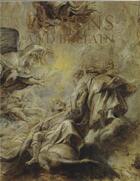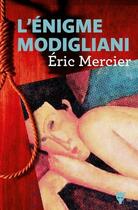-
Date de parution : 04/11/2015
-
Editeur :
Paul Holberton
-
EAN : 9781907372827
-
Série :
(-)
-
Support :
Papier
Résumé:
Cornelius Johnson (1593-1661) was a sympathetic and expressive painter, and it is surprising that he has not previously been the subject of a focused study.
The quality and diversity of this currently littleknown artist's work will be a revelation. He worked on every scale - from the miniature... Voir plus
Cornelius Johnson (1593-1661) was a sympathetic and expressive painter, and it is surprising that he has not previously been the subject of a focused study.
The quality and diversity of this currently littleknown artist's work will be a revelation. He worked on every scale - from the miniature to the full-length and big group portrait. His works, while always recognisably by him, reveal his exceptional flexibility and underline his response to successive influences.
Johnson's career coincided with one of the most dramatically and politically intense periods of British and Dutch history, as this book will explore, and he portrayed some of the most important figures of the era. His royal portraits include Charles I as well as Charles II and James II, painted as children, and he collaborated with Gerard Houckgeest on a portrait of Charles I's wife, Queen Henrietta Maria. Despite having only received a few commissions from the crown, in 1632 he was appointed as «his Majesty's servant in the quality of Picture drawer» by Charles I.
When four of his portraits in the Tate's collection were recently conserved, the author and curator Karen Hearn commissioned investigations into Johnson's working methods and techniques. This previously unpublished material will make a significant contribution to the technical literature on 17th-century painting.
Works by this prolific artist are found in almost every British museum and country-house collection and in many public collections in North America, Australia and New Zealand. There is also considerable interest in Johnson's work in the Netherlands, to which he migrated at the age of 50 and where he continued to work for the rest of his life.
Donner votre avis















